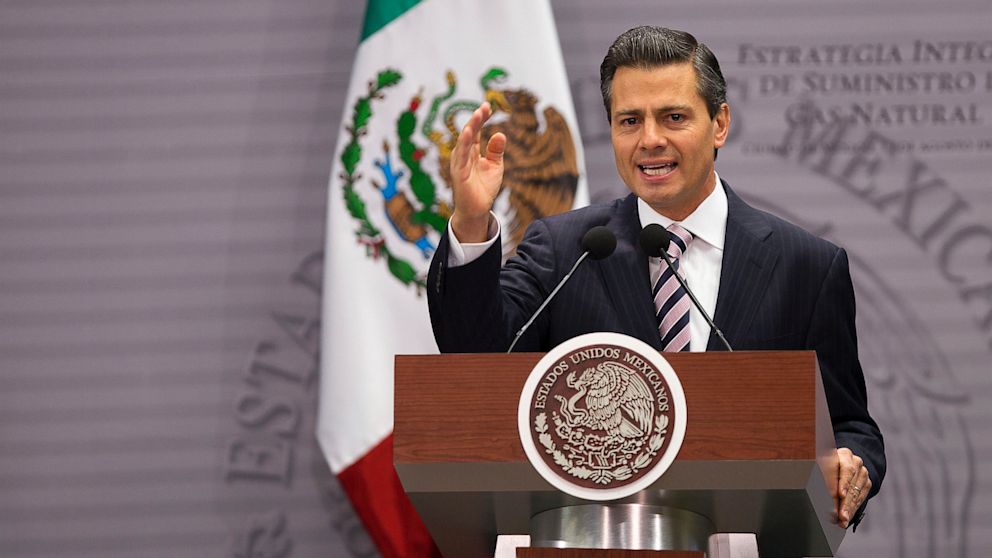Mexico's President Enrique Peña Nieto Is Changing More Than Energy Reform
The government might just be working in Mexico.

Aug. 16, 2013— -- I can't believe I am saying this but government might just be working in Mexico, especially when compared with the farcical politics here in el Norte.
While the U.S. Congress has trouble even keeping the lights on, the pace of change in Mexico under the Presidency of Enrique Peña Nieto has surprised even the most optimistic observers.
On August 12th Peña Nieto submitted to Congress a bill that would end the state's 75-year energy monopoly. Bloomberg reports that Peña Nieto's plan would allow private companies such as Exxon Mobil and Chevron to pump crude for the first time since 1938 by changing articles 27 and 28 of the constitution. According to Enrique Ochoa, Deputy Energy Minster, the proposed bill would enable companies that invest in Pemex to receive a portion of profits. The bill would also allow more private participation in electricity generation in an attempt to reduce prices that are estimated to be around 25 percent higher than in the United States.
That's a big deal. Mexico sits on huge reservoirs of oil and gas but needs a lot of investment and foreign expertise to find it and get it out of the ground. Oil has been a touchy political issue in Mexico, where the state-owned Petroleos Mexicanos (Pemex) and the oil that lies beneath Mexican soil and sea, are seen as part of national heritage. March 18th, the day in 1938 when President Lazaro Cardenas nationalized the oil industry and seized fields from U.S. and British companies is a national holiday.
The fact that the law has a good chance of passing highlights the modern ambitions of most Mexicans. There will be loud protests from leftist groups and some unions but the proposal has the support of both Peña Nieto's Partido Revolucionario Institucional (PRI) and the Partido Acción Nacional (PAN). The two parties and their allies control more than two thirds of congress. Public opinion appears to be on their side.
This move to modernize and gradually open up Pemex and the electricity industry is just the most recent legislation aimed at taking on the country's powerful monopolies that have stifled economic growth for decades.
Peña Nieto has already achieved legislative success with the Pact for Mexico, an accord signed between the PRI, PAN and PRD on Dec. 2, the day after he took office. According to Bloomberg, the accord has helped pass an education bill to make teachers more accountable for performance and a law to spur increased competition in the telecommunications industry, directly taking on Carlos Slim's telecom giant América Móvil. The Pact also includes plans to make the television industry more competitive and improve tax collection and transparency in government spending.
The successful reform push and inter-party agreement marks a stark difference to the extremely divided politics in the United States. It also contrasts with what is happening in other major Latin American countries like Venezuela, Argentina and even Brazil. While governance in the U.S. and much of Latin America has stagnated, is most certainly looks like Mexico is on the move.




